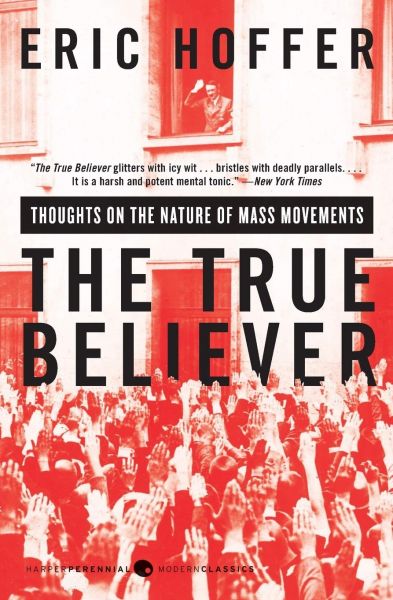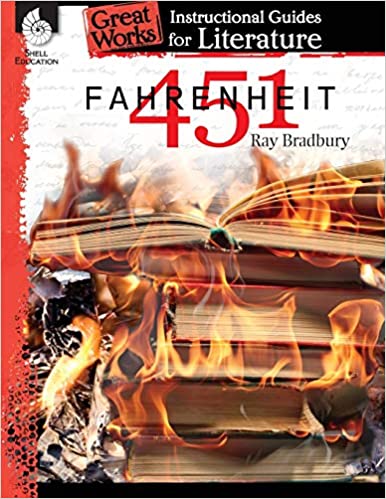Eric Hoffer on Freedom and Equality
The longshoreman-philosopher Eric Hoffer made astute observations about democracy in his book The True Believer, published not long after the surrender of Nazi Germany. Hoffer allows his readers to peek at the real forces that work in people. About freedom, he writes in Clause 26:
Freedom aggravates at least as much as it alleviates frustration. Freedom of choice
places the whole blame of failure on the shoulders of the individual.
Unless a man has the talents to make something of himself, freedom is an irksome
burden.
So while the majority of voters believe in freedom, they tend to draw back from it in their daily lives.
In Clause 28, Hoffer continues the thought:
Those who see their lives as spoiled and wasted crave equality and fraternity more
than they do freedom. If they clamor for freedom, it is but freedom to establish
equality and uniformity.
No one can then point us out, measure us against others, and expose our inferiority.
They who clamor loudest for freedom are often the ones least likely to be happy in
a free society.
They want to eliminate free competition and the ruthless testing to which the
individual is continually subjected in a free society.
Americans need to understand that only a force that works independently of the electoral process can safeguard our individual freedom.
Hoffer sums up the forces at work immutably in people in Clause 29:
Where freedom is real, equality is the passion of the masses. Where equality is
real, freedom is the passion of a small minority. (italics mine)
On the government-level, freedom does not have the sales-potential that equality has, which works to the advantage of the egalitarians. Freedom does not rely on emotions, political theatre, or warm, caring smiles. It gets its identity from legal abstracts and constitutional language—from documents that limit human behavior and government policy.
The documents may interest scholars and lawyers, but they bore everyone else; and that leaves them vulnerable to hucksters who know how to manipulate the public, or bully into submission the innate civility of a freedom-loving society.
Books: the Great Unequalizer
Ray Bradbury published his sci-fi, dystopian Fahrenheit 451 in 1951. I have no data about its sales in the early years. It must have caught on quickly with readers, but not so quickly with Hollywood, because a movie-version of it did not appear until 1967, directed by Frenchman Francois Truffaut. The complex themes of the novel and the technical expertise needed to make the movie faithful to the novel must have scared off a lot of movie-producers.
Although Fahrenheit has gained in credibility over the years, Bradbury had the same problem as Golding had with Lord of the Flies. Readers tended to see Fahrenheit as a book concerned with censorship. Wikipedia's article about it likewise misses some of its important points. It is in fact much more than a novel about censorship. It delves into human mysteries and touches human limitations. Seventy years after its publication, it has the added distinction of a prophetic work—technically as well as culturally.
Captain Beatty, the chief fireman in the story, burns books for a living. He feels no guilt about it. He does what the government wants—which only does what the public wants. He does not hate books. He only believes that books disturb human-kind and gives them an anti-social orientation. Beatty puffs on his pipe while he explains his views with the book's protagonist Guy Montag:
"More sports for everyone, group-spirit fun, and you don't have to think, eh? More
cartoons, more pictures, the mind drinks less and less. Impatience. Highways full of
crowds going somewhere . . . (going) nowhere. . . . Towns turn into motels, people
in nomadic surges from place to place."
Americans learn about their nation's uniqueness. They glean the lessons of 230 years of the nation's experience, then forget them again—addicted to living and acting in real-time. As Captain Beatty expresses it, "Life is immediate, the job counts, pleasure lies all about after work."
Years ago, I learned something about the risks of fast-driving from an auto-mechanic. He and I had a conversation about the death of race-car driver Dale Earnhardt. The mechanic told me that the faster a car travels, the easier it can wreck. That's nothing new, but he told me something of the dynamics of the wreck. If two cars travel side-by-side at a hundred-plus miles-an-hour, a passenger can reach out the window and push the other car into a wreck. The car's tires do not hold the pavement well at that speed. A nation that travels fast can also lose its sense of direction easily. All it needs is a persuasive huckster to do the pushing.
Like Beatty says, it doesn't pay to think too much. He even admits the police watched the home of Guy Montag's young friend Clarisse McClellan because her family spent too much time thinking. The police considered this anti-social. Clarisse explained her family's reasons to Guy:
"My uncle says there used to be front porches. People sat there sometimes at night,
talking when they wanted to. . . . Sometimes they just sat there and thought about
things, turned things over. My uncle says the architects got rid of front porches. . . .
They didn't like people sitting like that, doing nothing, rocking, talking; it was the
wrong kind of social life."
Captain Beatty continues that the McClellans did not want to know how a thing was done, but why. He explains to Montag the right kind of social life:
"We must all be alike. Not everyone born free and equal, as the Constitution says,
but everyone made equal. Each man the image of every other; then all are happy.
A book is a loaded gun in the house next door. Burn it. . . . Who knows who might
be the target of the well-read man?"
Beatty continues that firemen burned books to make people feel safe. They served as the "custodians of our peace of mind, the focus of our understandable and rightful fear of being inferior." (italics mine)
There you have it, as Beatty might say. In a free society, some people read books and contemplate "what-if" questions. The books and questions that follow pull them in another direction, away from other people. They start businesses, write books, or go to university to obtain a degree. Books make people unequal. Egalitarians fear them for that reason—and the people who read them. Egalitarians prefer to forbid books in order to make people equal. Spreading the rumor that the Republicans want to outlaw books misrepresents the Republican position monstrously.
Captain Beatty tells Montag something else: Equality dumbs down literarture so that it won't offend anyone:
"Now let's take up the minorities in our civilization. . . . Don't step on the toes of the
dog-lovers, cat-lovers, doctors, lawyers, . . . Unitarians, second-generation Chinese,
Brooklynites. . . . The people in this book, this place, this TV serial are not meant to
represent any actual (people). . . . Authors, full of evil thoughts, lock up your type-
writers. . . . Magazines became a nice blend of vanilla tapioca. (italics mine)
Thomas Steinfeld, a journalist in Germany published an article on this subject in Die Süddeutsche Zeitung. He quoted a leading politician Wolfgang Thierse, a member of the Democratic-Socialist Party, who said that "Germany needs cultural education in order to defeat the forces of social exclusion."
But I don't know how Thierse expects to do that without offending anyone, except by making culture "a nice blend of vanilla tapioca?" Steinfeld came down hard and said "Das ist Unsinn!" It is nonsense! "Since the days of Jean-Jacques Rousseau and Gustave Flaubert, and even in modern times, Frank Zappa, culture is the opposite of social inclusion. Culture can be spiteful, rejectionist, asocial. It can reject the status quo, or even our presumptions about the common good."
Can you imagine a nation governed by democratic-socialists? As soon as they assume power, they will have to build another Berlin Wall, in order to prevent people from leaving. They will need long to figure out that a nation governed by democratic-socialists will push uniformity and equality "rejectionists" and spiteful asocials. This means that the government will repress everyone and bend us to conform us to a predetermined design—never mind how this differs from the natural state of mankind. This insensitivity about the needs of real people will scare them from a democratic-socialist government, and they will want to leave.
I know that many Democrats will disagree with me and claim that Republicans like the idea of book-censorship more than they do; but the fact remains that most of the Founding Fathers feared a democracy as much as they did a monarchy. They would have voted Republican. The Federalist Party, to which most of them belonged, had the most influence on the values to the Republican Party. Most of the Founders read widely in more than one language. They needed philosophical and historical support before they could attempt something like a revolution and create a new nation with such revolutionary precepts.


